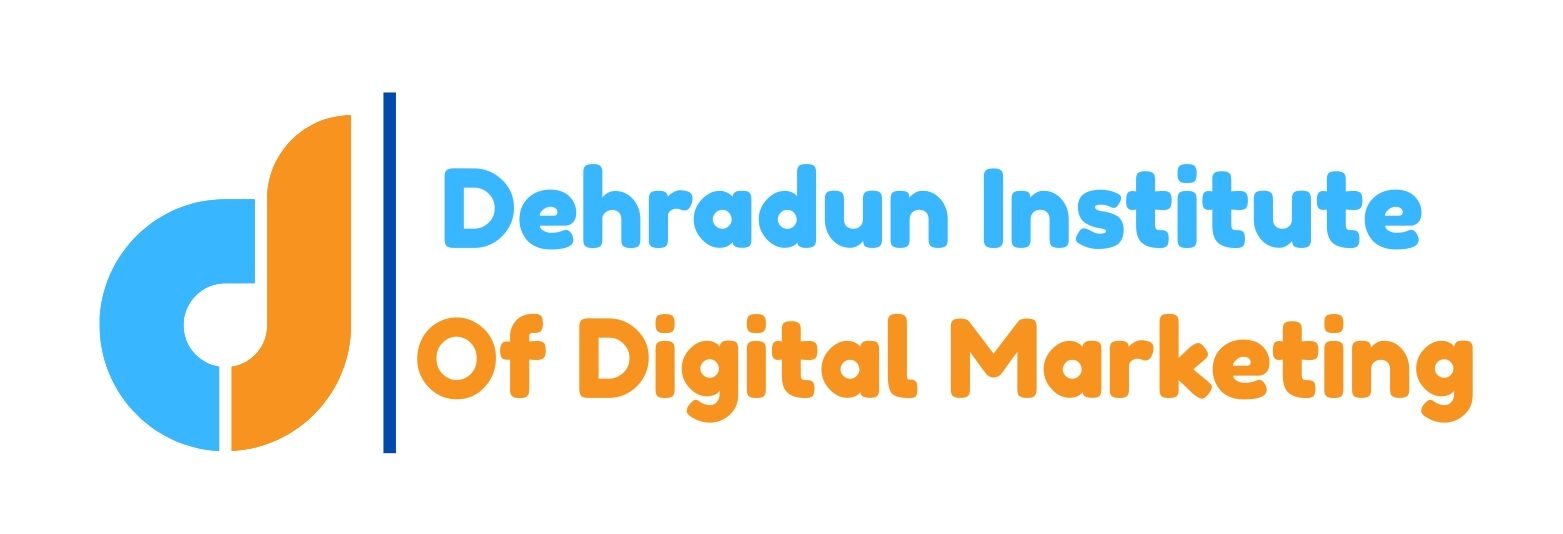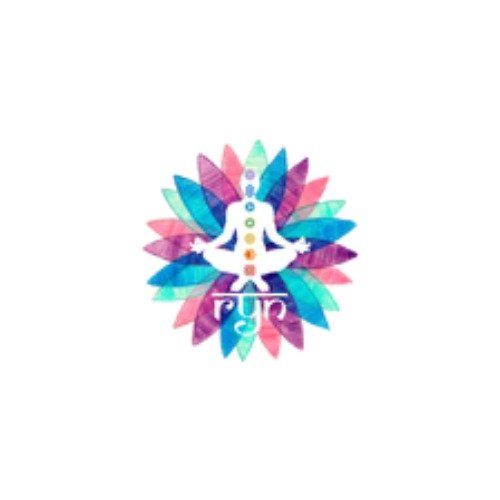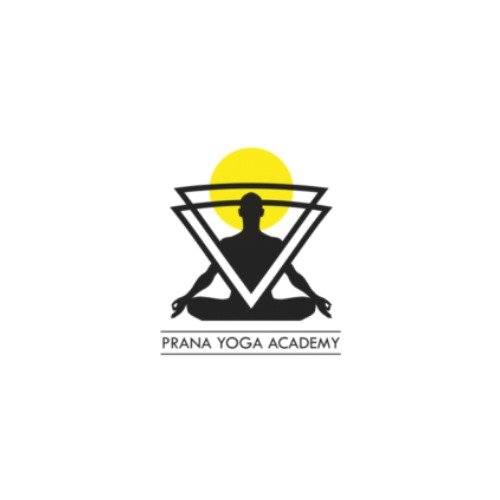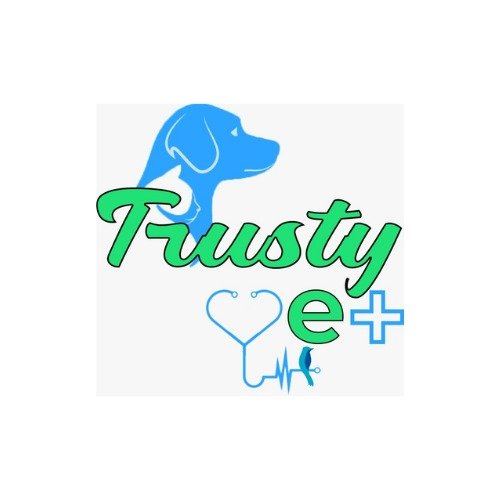Social Media Marketing Course

What is Social Media Marketing Services?
Digital Folks provides social media marketing services to help you drive more traffic to your website, increase brand awareness and create a reliable resource for your clients.Social Media Marketing is a type of digital marketing where people can use various social platforms to promote company’s services and products. SMM can help you to increase brand awareness, drive more traffic to your website, develop your brand’s reliability, increase conversions and many more.
Best for you
How SMM Team Can Help
We are one of the best digital marketing companies and we offer best SMM services to the small businesses, the large organizations and also individuals. Our skilled social media marketing team can guide you great best SMM strategies. So, let us increase your brand awareness and loyalty.

care features
Best SMM Agency
We’re one of the best SMM agencies. Our SMM experts can provide all types of SMM services efficiently. We offer faster SMM services at a reasonable price. So, increase more traffic, improve your business and bring your business to the spotlight with the best SMM agency.
Benefits of Social Media Marketing
| Benefit | Explanation |
|---|---|
| Brand Awareness | Increases visibility of your business among new audiences |
| Traffic Generation | Drives traffic to your website or landing pages |
| Lead Generation | Helps collect emails and customer info through ads/forms |
| Sales Conversion | Converts leads into paying customers |
| Customer Support | Offers instant resolution and feedback through comments/messages |
| Community Building | Creates a loyal audience and community around your brand |
Overview of Popular Social Media Platforms
| Platform | Users (Approx.) | Best For |
|---|---|---|
| 3 billion+ | Community building, ads | |
| 2 billion+ | Visual content, reels, branding | |
| 950 million+ | B2B, hiring, professional reach | |
| Twitter/X | 400 million+ | Real-time news, engagement |
| YouTube | 2.5 billion+ | Video content, long-form ads |
| 500 million+ | Visual search, DIY, eCommerce | |
| TikTok | 1.5 billion+ | Short videos, youth engagement |
Key Social Media Marketing Terms to Know
| Term | Meaning |
|---|---|
| Engagement | Likes, comments, shares, and interactions on your posts |
| Reach | Number of unique users who saw your post |
| Impressions | Total number of times your post was displayed |
| CTR (Click Through Rate) | Ratio of users who click a link after seeing it |
| CPC (Cost Per Click) | Cost you pay for each click in a paid ad campaign |
| Conversion | Desired action taken (signup, purchase, etc.) |
| Organic vs Paid Reach | Free visibility vs. visibility through advertising |
| Hashtag | Keyword or phrase preceded by # to categorize content |
| Influencer | Person with authority/followers on social media who can promote brands |
Tools Used in Social Media Marketing
Content Creation: Canva, Adobe Express, Photoshop
Scheduling: Buffer, Hootsuite, Meta Business Suite
Analytics: Facebook Insights, Instagram Insights, Google Analytics
Social Listening: Brandwatch, Sprout Social
Video Editing: CapCut, InShot, Adobe Premiere Rush
Quiz & Assignment
Quiz (5 Questions)
-
What is the primary purpose of Social Media Marketing?
-
Name two benefits of using Instagram for business.
-
What does CTR stand for?
-
Difference between reach and impressions?
-
Name one content creation tool and one scheduling tool.
Assignment:
Create a table comparing at least three social media platforms:
-
Users (approx.)
-
Best content types
-
Best use cases (B2B, eCommerce, Personal Brand)
Understanding Major Social Media Platforms
Overview of Social Media Platforms
This section introduces the most popular platforms used in social media marketing, helping you decide which are best for your goals.
| Platform | Monthly Users (Approx.) | Type of Content | Best For |
|---|---|---|---|
| 3+ Billion | Text, Images, Videos, Ads | Communities, Ads, Awareness | |
| 2+ Billion | Photos, Reels, Stories | Branding, Visual Marketing | |
| 950+ Million | Articles, Jobs, Posts | B2B, Careers, Thought Leader | |
| YouTube | 2.5+ Billion | Long/Short Videos | Tutorials, Branding, Monetize |
| Twitter/X | 400+ Million | Short Text, Trends | Real-time News, Updates |
| 500+ Million | Pins, Boards | eCommerce, DIY, Inspiration | |
| TikTok | 1.5+ Billion | Short-Form Videos | Gen Z, Trends, Viral Content |
Facebook for Marketing
-
Create a Business Page
Add profile, cover image, about, services, and call-to-action (CTA) button. -
Facebook Groups
Useful for community building and organic reach. -
Facebook Ads Manager
-
Campaign Structure: Campaign > Ad Set > Ad
-
Objective Types: Awareness, Traffic, Engagement, Leads, Sales
-
Audience Targeting: Location, Age, Gender, Interests
-
-
Facebook Pixel
-
Tracks user activity on your website.
-
Enables retargeting ads.
-
-
Insights & Analytics
-
Monitor engagement, reach, post performance
-
Instagram for Marketing
-
Create Business/Creator Profile
-
Add Bio, Highlights, CTA Buttons (Email, WhatsApp)
-
-
Content Types
-
Feed Posts: High-quality images/videos
-
Stories: 24-hour short videos
-
Reels: Short engaging videos with music
-
IGTV: Long-form videos
-
-
Hashtag Strategy
Use 10–30 relevant hashtags per post (mix popular + niche). -
Instagram Ads
Run ads through Meta Business Suite or Instagram directly. -
Instagram Insights
Track reach, impressions, interactions, audience demographics.
LinkedIn for Marketing
-
Profile & Company Page Setup
-
Professional profile photo, banner, summary, experience.
-
Add services, website, contact details to Company Page.
-
-
Content Strategy
-
Post articles, industry news, employee highlights, job posts.
-
Use hashtags and tag people/companies.
-
-
LinkedIn Ads
-
Sponsored Content
-
Message Ads (InMail)
-
Text Ads & Dynamic Ads
-
-
LinkedIn Analytics
-
Measure followers, impressions, clicks, and engagement.
-
YouTube for Marketing
-
Create & Optimize Channel
-
Add profile pic, banner, channel description, and keywords.
-
-
Video Types
-
Tutorials, Product Demos, Vlogs, Webinars, Explainers
-
-
SEO for YouTube
-
Optimize Title, Description, Tags, Thumbnails
-
Use timestamps and playlists
-
-
YouTube Ads
-
Skippable (TrueView), Non-skippable, Bumper, Discovery
-
-
YouTube Studio (Analytics)
-
Watch Time, Subscribers, Traffic Sources
-
Twitter/X for Marketing
-
Profile Setup
-
Professional bio, header image, website link
-
-
Tweeting Strategy
-
Use hashtags, trending topics, and mentions
-
Mix of text, polls, images, GIFs
-
-
Twitter Ads
-
Promote Tweets, Trends, or Accounts
-
-
Twitter Analytics
-
Track tweet impressions, engagements, CTR
-
Pinterest for Marketing
Business Account Setup
Optimize profile, claim website, enable rich pins
Pin & Board Strategy
Use vertical, attractive images with text overlays
Pinterest Ads
Traffic campaigns, conversions, awareness
Pinterest SEO
Use keywords in pin titles, descriptions, and boards
Quiz & Assignment
Quiz Questions (5 MCQs)
-
What type of content works best on Pinterest?
-
Which platform is ideal for B2B marketing?
-
What are Facebook Ads’ three campaign levels?
-
What is the use of the Facebook Pixel?
-
Which video format is short and trending?
Assignment
-
Choose 2 platforms (e.g., Instagram & YouTube)
-
Compare them based on:
-
Target audience
-
Best content types
-
Ad formats
-
Analytics available
-
Social Media Strategy & Planning
Understanding the Purpose of a Strategy
A social media strategy outlines your goals, the tactics you’ll use to achieve them, and how you’ll measure success. It brings clarity, focus, and direction to your efforts.
Defining Goals & Objectives
Before posting, know what you’re trying to achieve.
Common social media goals:
Increase brand awareness
Drive website traffic
Generate leads or sales
Boost community engagement
Provide customer support
Use the SMART framework for goal setting:
Specific
Measurable
Achievable
Relevant
Time-bound
Audience Research & Persona Building
Understand who your audience is:
Research Factors:
Age, gender, location
Interests & hobbies
Online behavior
Preferred platforms
Create a Buyer Persona:
Example:
Name: Riya Sharma
Age: 27
Location: Delhi
Interests: Fitness, Lifestyle, Travel
Uses: Instagram, YouTube
Competitor Analysis
Analyze 3-5 competitors:
What platforms do they use?
What type of content gets high engagement?
What hashtags do they use?
What are their posting frequency and tone?
Tools: Meta Ad Library, Social Blade, Sprout Social
Content Strategy Planning
Types of Content:
Educational (tips, tutorials)
Entertaining (memes, reels)
Inspirational (quotes, success stories)
Promotional (products/services)
Interactive (polls, contests)
Content Mix Example:
| Day | Content Type |
|---|---|
| Monday | Educational Post |
| Tuesday | Customer Testimonial |
| Wednesday | Infographic |
| Thursday | Live Q&A |
| Friday | Meme or Fun Reel |
Content Calendar Creation
Helps plan and organize posts by date and platform
Reduces last-minute work
Ensures consistent posting
Tools: Google Sheets, Notion, Trello, Buffer
Example Format:
| Date | Platform | Type | Caption | Image/Link |
|---|---|---|---|---|
| 5th Aug | Reel | “Tips for better sleep” | sleep.jpg | |
| 6th Aug | Article | “5 Productivity Hacks” | blog link |
Budget Planning for Social Media
Decide how much to spend on:
Content Creation (graphics, video editing)
Paid Ads (Facebook, Instagram, YouTube, etc.)
Influencer marketing (if applicable)
Tools/Software subscriptions
Sample Budget Breakdown:
| Category | Monthly Cost |
|---|---|
| Facebook Ads | ₹5,000 |
| Canva Pro | ₹500 |
| Influencer Post | ₹2,000 |
| Video Editing | ₹1,500 |
Setting KPIs (Key Performance Indicators)
Track these depending on your goals:
| Goal | KPI Examples |
|---|---|
| Brand Awareness | Reach, Impressions, Followers |
| Website Traffic | Clicks, Bounce Rate |
| Engagement | Likes, Comments, Shares |
| Lead Generation | Form Submissions, Signups |
| Sales/Conversions | Orders, Revenue, ROAS |
Reporting & Evaluation
Monitor performance weekly/monthly
Use platform analytics + Google Analytics
Adjust strategy based on results
Questions to ask:
Which posts performed best?
What time/day got the most engagement?
What didn’t work?
Quiz & Assignment
Quiz Questions (5)
What does SMART stand for in goal setting?
Name two tools used for competitor analysis.
What is the purpose of a content calendar?
Define a buyer persona with two fields.
Which KPI would you track for “brand awareness”?
Assignment
Create a weekly content plan for a fitness brand.
Include:
Target audience details
5 content ideas
Suggested platform(s)
Budget allocation for 1 week
Content Creation & Marketing
Importance of Content in Social Media Marketing
Content is the foundation of all social media efforts.
-
It communicates your brand message
-
Engages and educates your audience
-
Encourages likes, shares, clicks, and conversions
-
Builds trust and credibility
“Content is king, but engagement is queen.”
Types of Social Media Content
| Type | Description | Examples |
|---|---|---|
| Text Posts | Short messages, captions | Quotes, announcements |
| Images | Graphics, infographics | Product images, memes |
| Videos | Long or short videos | Reels, tutorials, ads |
| Stories | Temporary content (24 hours) | Behind-the-scenes, polls |
| Reels/Shorts | Short, vertical videos | Hacks, trends, dance videos |
| Live Content | Real-time interaction | Live Q&A, interviews |
| Polls/Quizzes | Interactive, engaging content | “Which is better?” questions |
| User-Generated | Customer-shared content | Testimonials, photos |
| Carousels | Swipable posts (Instagram, LinkedIn) | Step-by-step guides |
Tools for Creating Content
| Tool | Use | Free Plan Available |
|---|---|---|
| Canva | Graphic design | Yes |
| CapCut | Video editing (mobile/desktop) | Yes |
| InShot | Mobile video editing | Yes |
| Adobe Express | Design and quick edits | Yes |
| Pexels / Unsplash | Free stock images | Yes |
| ChatGPT | Content idea generation | Yes |
Writing Captions that Convert
Tips for Writing Engaging Captions:
-
Start with a hook or question
-
Use emojis to make it fun 😎
-
Add a CTA (Call to Action) – e.g., “Tag a friend”, “Click the link”
-
Keep it clear, conversational, and concise
Formula: Hook + Value + CTA
Example:
Want better sleep? Try these 3 tips tonight
Tap Save to remember them! #SleepTips
Content Pillars
Create content in themes or categories to stay consistent.
| Pillar | Example for Fitness Brand |
|---|---|
| Educational | “5 benefits of daily stretching” |
| Inspirational | “Client before/after transformation” |
| Promotional | “Join our 7-day fitness challenge” |
| Entertaining | “Fitness meme of the week” |
| Community | “Tag your workout buddy ” |
Planning a Monthly Content Calendar
Plan your content for 30 days:
| Date | Platform | Content Type | Topic |
|---|---|---|---|
| Aug 1 | Reel | 3 Morning Stretch Routines | |
| Aug 2 | Image | Quote: “No pain, no gain” | |
| Aug 3 | Article | Wellness at the Workplace |
Tools for Planning: Google Sheets, Notion, Trello, Buffer
Visual Branding in Content
Maintain a consistent look and feel:
-
Use your brand’s color palette
-
Choose consistent fonts & layouts
-
Add your logo or watermark
-
Follow a theme or tone (formal/fun/inspiring)
Content Trends & Formats in 2025
-
Reels/Shorts (Instagram, YouTube, TikTok)
-
AI-generated content (image/video ideas)
-
Interactive content (polls, quizzes)
-
Behind-the-scenes / raw videos
-
Memes & relatable humor
Calls to Action (CTA) That Work
| CTA Type | Examples |
|---|---|
| Like/Engagement | “Double tap if you agree!” |
| Comment | “What’s your favorite tip?” |
| Share | “Send this to someone who needs it!” |
| Save | “Save this for later!” |
| Link Click | “Visit our website to know more” |
| DM | “Message us for a free consultation” |
Quiz & Assignment
Quiz (5 Questions)
-
Name three types of content formats.
-
What tool would you use to make a carousel post?
-
Write a CTA for a post about healthy eating.
-
What is a content pillar?
-
Give one example of visual branding in a post.
Assignment
Create 5 social media posts for a clothing brand:
-
Choose 2 platforms (e.g., Instagram, Facebook)
-
Include:
-
Caption
-
Content type (image, reel, etc.)
-
CTA
-
Hashtags (3–5)
-
Social Media Advertising (Paid Marketing)
What is Paid Social Media Marketing?
Paid marketing is when you spend money to promote your content, boost visibility, or drive specific actions using the ad systems of social media platforms.
Why Use Paid Ads?
-
Fast results (compared to organic reach)
-
Advanced targeting (age, interests, location)
-
Scalable for any business size
-
Retargeting capabilities
-
Boost sales, leads, or brand awareness
Structure of a Social Media Ad Campaign
| Level | Description |
|---|---|
| Campaign | Choose your objective (e.g., Traffic, Leads) |
| Ad Set | Set your audience, budget, schedule, placements |
| Ad | Actual creative (image, video, text, CTA) |
Choosing the Right Objective
| Objective Category | Examples |
|---|---|
| Awareness | Brand awareness, Reach |
| Consideration | Traffic, Engagement, Video Views, Messages |
| Conversion | Website Conversions, Sales, Leads |
Tip: Always align the objective with your campaign goal (e.g., don’t choose “Reach” if you want purchases).
Audience Targeting
Types of Targeting:
-
Core Audience: Based on demographics, location, interests
-
Custom Audience: Upload email list, website visitors, etc.
-
Lookalike Audience: Target people similar to your best customers
Example:
-
Age: 25–35
-
Location: Delhi NCR
-
Interests: Fitness, Yoga, Gym Wear
Budgeting & Bidding
Budget Types:
-
Daily Budget: Spend X per day
-
Lifetime Budget: Spend a total amount over a time range
Bidding Options:
-
Automatic (platform decides best price)
-
Manual (you set the max bid)
Tip: Start with a small budget (e.g., ₹100–₹200/day) and scale based on performance.
5.6 Ad Formats on Facebook & Instagram
| Format | Description |
|---|---|
| Image Ad | Static image + caption + CTA |
| Video Ad | Short video explaining your product |
| Carousel | Multiple images/videos in a swipe format |
| Story Ad | Full-screen mobile-first ad |
| Collection | Shop-style layout for eCommerce |
| Lead Form Ad | Built-in form to collect contact details |
CTA Examples: “Learn More”, “Shop Now”, “Download”, “Book Now”
Creating Facebook/Instagram Ads
Tools:
-
Meta Business Suite / Facebook Ads Manager
-
Instagram App (for Boosting)
Steps:
-
Go to Meta Ads Manager
-
Click Create > Choose Objective
-
Set audience, placements, budget, schedule
-
Upload creative (image, video, copy)
-
Preview & Publish
YouTube Ads Overview
| Format | Description |
|---|---|
| Skippable Ads | Viewer can skip after 5 sec |
| Non-Skippable Ads | Must watch fully (15 sec or less) |
| Bumper Ads | 6-second unskippable |
| Discovery Ads | Appear in search results or related videos |
Tool: Google Ads > Video Campaigns
Targeting: Based on keywords, placements, interests, custom intent
LinkedIn Ads Basics
| Format | Best For |
|---|---|
| Sponsored Content | Awareness, Engagement |
| Message Ads (InMail) | Lead generation, Personal Offers |
| Dynamic Ads | Follower growth, personalization |
| Text Ads | High-visibility B2B promotion |
Tip: Use LinkedIn Ads for B2B, job recruitment, and professional services
A/B Testing (Split Testing)
A/B Testing is testing two or more versions of your ads to find the most effective one.
Test Variables:
-
Headlines
-
Images vs. Videos
-
CTA buttons
-
Audience segments
Example:
-
Ad A = “Shop Now” with a red image
-
Ad B = “Get Yours Today” with a blue image
Measure: CTR, Conversions, Cost per Result
Measuring Ad Performance
| Metric | Meaning |
|---|---|
| Reach | Unique people who saw the ad |
| Impressions | Total views (can include repeats) |
| Click-Through Rate (CTR) | % of people who clicked |
| Cost Per Click (CPC) | Amount spent per click |
| Conversions | Desired actions taken (signup, purchase) |
| ROAS | Return on Ad Spend |
Tool: Ads Manager / Google Analytics
Quiz & Assignment
Quiz Questions:
-
What are the three levels of a Facebook ad campaign?
-
Define Lookalike Audience.
-
Name two ad formats used in Instagram.
-
What is A/B Testing in ads?
-
Which metric shows how many clicked on the ad?
Assignment:
Create a sample Facebook ad campaign for a mobile accessories brand. Include:
-
Campaign Objective
-
Target Audience (location, interests)
-
Budget
-
Ad Creative (headline, image/video, CTA)
-
Expected Result (goal: leads, sales, etc.)
Analytics & Reporting
What is Social Media Analytics?
Social media analytics is the process of collecting and analyzing data from social platforms to:
-
Measure performance
-
Track audience behavior
-
Improve campaigns
-
Justify ROI
Key Metrics to Track
| Metric | Meaning |
|---|---|
| Reach | How many unique users saw your post/ad |
| Impressions | Total views (may include multiple from same user) |
| Engagement Rate | Likes, shares, comments divided by reach |
| Click-Through Rate (CTR) | % of users who clicked |
| Conversion Rate | % of users who completed desired action |
| Bounce Rate | % of users who left your site without action |
| Follower Growth | Net gain/loss of followers over time |
Tools for Social Media Analytics
| Tool | Use Case |
|---|---|
| Facebook Insights | Page engagement, likes, reach |
| Instagram Insights | Posts, reels, story stats |
| LinkedIn Analytics | Profile or page performance |
| YouTube Studio | Views, watch time, audience retention |
| Google Analytics (GA4) | Website traffic from social platforms |
| Meta Business Suite | Cross-platform metrics (FB + IG) |
| Hootsuite/Buffer/Sprout | Cross-channel dashboards |
Analyzing Organic vs Paid Results
| Category | Organic | Paid |
|---|---|---|
| Reach | Limited, relies on algorithm | Large, controlled through budget |
| Engagement | Based on content quality | Boosted by targeting & placement |
| Cost | Free | Paid based on impressions or actions |
| Tracking | Limited (basic insights) | Detailed (clicks, ROI, conversions) |
Tip: Combine both to get better overall visibility and performance.
Interpreting Engagement Rate
Formula:
Engagement Rate = (Total Engagements / Total Reach) × 100
Benchmarks:
-
>5% = Excellent
-
3–5% = Good
-
<1% = Needs improvement
Facebook & Instagram Insights Dashboard
Key Sections:
-
Overview: Reach, profile visits, followers
-
Content: Top posts by engagement
-
Audience: Age, gender, location
-
Activity: Actions on page (clicks, messages)
Use it to:
-
Track which content performs best
-
Learn when your audience is active
-
Adjust your content strategy
YouTube Analytics
| Metric | Use For |
|---|---|
| Watch Time | Indicates quality content |
| Audience Retention | Shows where viewers drop off |
| CTR | Measures effectiveness of thumbnails |
| Subscribers Gained | From each video |
Use it to refine titles, thumbnails, video length, and topics.
Audience Analysis
Understanding who interacts with your content:
-
Age/Gender
-
Location
-
Device usage
-
Time active
Why it’s useful?
You can tailor your message and ad targeting accordingly.
ROI Calculation for Social Media
Basic ROI Formula:
ROI = (Revenue from campaign - Cost of campaign) / Cost × 100
Example:
If you spent ₹5,000 on ads and made ₹15,000 in sales:
ROI = (15000 – 5000) / 5000 × 100 = 200%
Tools: Use Facebook Ads Manager, Google Analytics, UTM tags
UTM Parameters
Used to track specific links across campaigns in Google Analytics.
Example:
https://example.com?utm_source=instagram&utm_medium=post&utm_campaign=summer_sale
Helps identify:
-
Best-performing platform
-
Top campaign sources
-
User journey
Use Google’s UTM Builder Tool
Weekly/Monthly Reporting
Your report should include:
-
Overview of performance
-
Goals vs. actual results
-
Best and worst content
-
Recommendations for improvement
Tools: Google Sheets, Excel, PowerPoint, Data Studio
Quiz & Assignment
Quiz:
-
What is the difference between reach and impressions?
-
Define engagement rate formula.
-
Which tool is best for cross-platform reporting?
-
What does UTM stand for?
-
What’s a good engagement rate on Instagram?
Assignment:
Create a monthly performance report for an Instagram business page. Include:
-
Top 3 posts and their metrics
-
Audience insights
-
Recommendations to improve engagement
-
Summary of follower growth
Social Media Strategy Building
What is a Social Media Strategy?
A social media strategy is a detailed plan used to:
-
Achieve business goals using social media platforms.
-
Define audience, tone, content, and goals.
-
Align marketing objectives with platform-specific actions.
Elements of a Strong Strategy
-
Goals & Objectives
-
Brand awareness
-
Lead generation
-
Website traffic
-
Customer support
-
-
Target Audience
-
Age, location, interests, platforms used
-
-
Platform Selection
-
Instagram: Visual-first brand
-
LinkedIn: B2B marketing
-
Facebook: Mixed demographics
-
YouTube: Long-form content
-
Twitter/X: News & real-time updates
-
-
Content Strategy
-
Content pillars (education, entertainment, promotion)
-
Posting frequency
-
Visual tone and brand guidelines
-
-
Engagement Plan
-
Reply to comments and DMs
-
Run contests, polls, Q&As
-
User-generated content
-
-
Performance Tracking
-
Use KPIs and analytics
-
Weekly/monthly review
-
A/B testing for ads
-
Understanding Audience Personas
Create buyer personas based on:
-
Age, gender, job title, location
-
Pain points & goals
-
Social behavior & platforms used
Example:
Ravi, 28, Startup Founder. Uses LinkedIn & Twitter. Wants to promote his product using paid ads.
Creating a Content Calendar
Benefits:
-
Ensures consistency
-
Aligns with campaigns/promotions
-
Helps manage team tasks
Tools: Google Sheets, Trello, Notion, Hootsuite Planner
Include:
-
Date
-
Platform
-
Post type (reel, infographic, blog)
-
Caption
-
CTA
-
Image link
Setting SMART Goals
A SMART Goal is:
-
Specific
-
Measurable
-
Achievable
-
Relevant
-
Time-bound
Example:
“Increase Instagram followers by 20% in 3 months”
Planning Visual Content
Ensure:
-
Brand colors & fonts are consistent
-
Image sizes meet platform specs
-
Use carousels, reels, live, stories
-
Add subtitles for videos
Tools: Canva, Adobe Express, InShot, CapCut
Choosing the Right Tone & Voice
Decide how your brand will sound:
-
Friendly or Professional?
-
Bold or Minimalist?
-
Funny or Informative?
Tip: Stay consistent in all captions and replies.
Reposting & Repurposing Content
Benefits:
-
Saves time
-
Reaches new audiences
-
Reinforces your message
Example:
Turn a blog → Instagram carousel → Reel → LinkedIn post → Tweet thread
Video Strategy on Social Media
Video content gets more engagement.
| Platform | Video Type |
|---|---|
| Reels, Stories | |
| Lives, Stories | |
| YouTube | Shorts, Vlogs |
| Explainers, Interviews | |
| TikTok | Trends, Duets |
Automation & Scheduling Tools
Use tools to:
-
Save time
-
Stay consistent
-
Post during optimal times
Popular tools:
-
Hootsuite
-
Buffer
-
Meta Business Suite
-
Later
-
Zoho Social
Crisis Management Plan
Prepare for:
-
Negative comments
-
PR issues
-
Trolls or hate speech
Action plan:
-
Respond quickly and politely
-
Escalate major issues to PR
-
Don’t delete valid criticism
Paid vs. Organic Strategy
| Organic Strategy | Paid Strategy |
|---|---|
| Builds community | Reaches larger audience quickly |
| No cost, but slow | Budget required |
| Ideal for engagement & trust | Ideal for reach, leads, conversions |
A/B Testing
Test small changes to see what works best:
-
Caption style
-
Image type
-
Posting time
-
CTA wording
Analyze results weekly to optimize.
Case Study: Zomato
Strategy Highlights:
-
Witty tone and humor
-
Memes & trend marketing
-
Timely and relatable posts
-
High engagement + brand recall
Quiz & Assignment
Quiz:
-
What does SMART stand for?
-
What are content pillars?
-
Name 3 tools for scheduling content.
-
What is the benefit of repurposing content?
-
What is a buyer persona?
Assignment:
-
Build a one-month content calendar for a business of your choice.
-
Include: platform, type of post, caption idea, date, CTA
-
Define your buyer persona for the same business
Our Clients
These are some of our satisfied customers. These clients are ranking in the top Google search pages for their keywords because of our SEO services. We not only offer SEO services, but we also offer a whole range of digital marketing solutions





